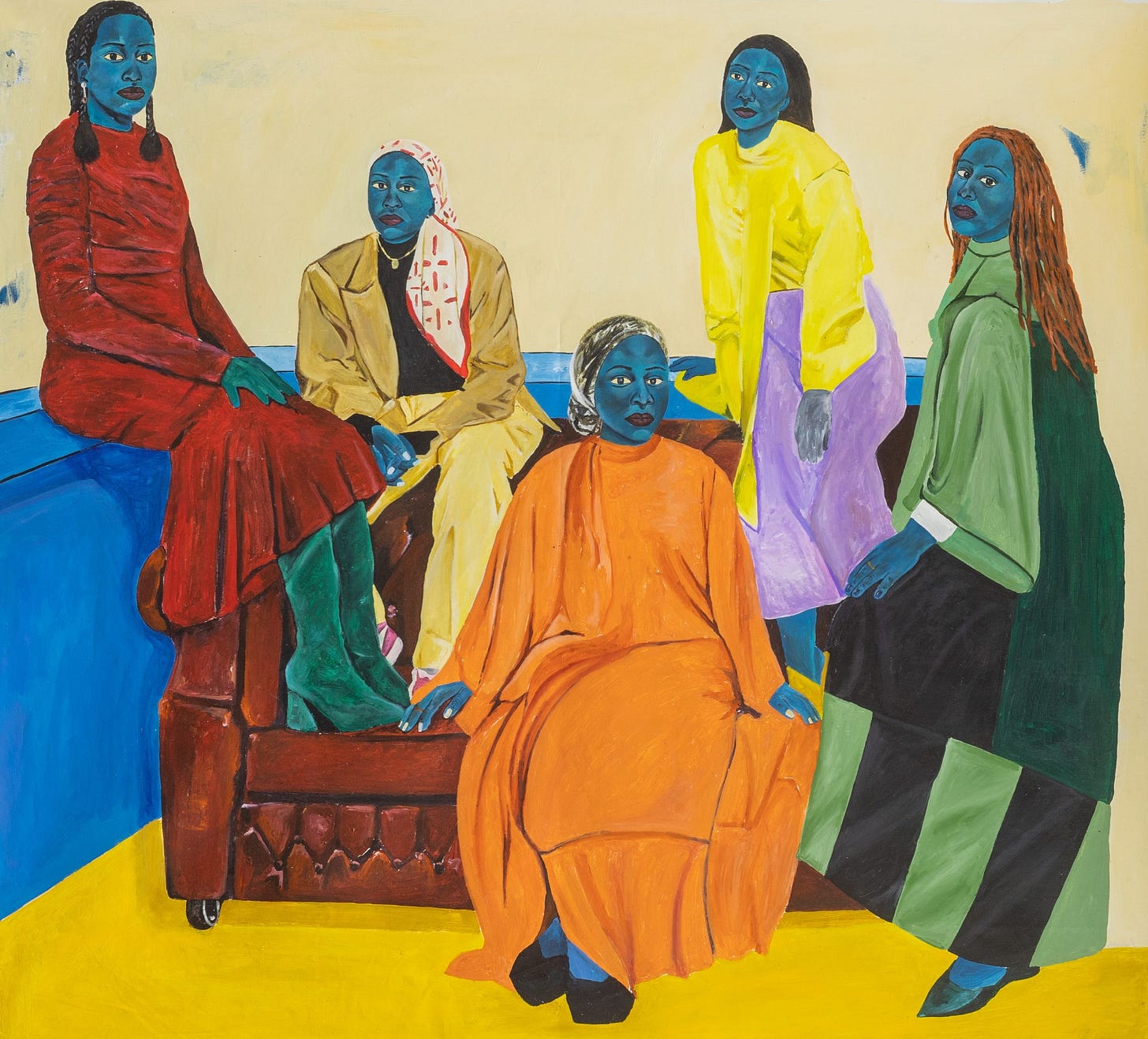Low-Maintenance Friendships and Ghosting: Why Relationships Fail
A Hidden Reason Behind Ghosting
We’ve all been there, ghosted by someone we thought we had a meaningful connection with. Whether it’s a romantic partner or a close friend, the silence stings. But why does it happen? Some people hate being ghosted, and yet it happens to them repeatedly. As self-aware as they might be, they often fail to recognize the pattern.
Why? Because self-awareness, while valuable, doesn’t always extend to certain blind spots especially those involving how others experience us.
This brings me to a conversation I had with a loved one (shared with their permission, as this happened 2 years ago). They were deeply bothered by how often they were ghosted, especially in romantic situations. As someone who values communication and strives to offer grace, I initially held back from giving them feedback. Why? Because unsolicited advice, no matter how insightful, rarely lands well, especially with someone who is already self-aware but struggles with emotional regulation.
The Challenge of Self-Aware Overthinkers
This friend of mine is highly accomplished, thoughtful, and deeply self-aware. But like many self-aware people, they also have blind spots—parts of themselves they struggle to see clearly. They are cerebral, prone to overthinking, and have a tendency to fly off the handle when someone points out what they don’t want to hear.
I knew this about them, and I also knew that their pattern of emotional dysregulation had, on occasion, placed our friendship in the crossfire. It’s something I’ve navigated with patience because I care about them. But this very pattern—an inability to regulate emotions in tense moments—has led others to ghost them rather than communicate directly.
Why People Ghost Instead of Communicating Directly
I’ve written before about how much I value communication. But let’s face it, not everyone communicates the same way. Some people outright avoid conflict because they fear how the other person will react.
This isn’t just about ghosting out of cowardice that’s an oversimplified explanation. Sometimes, they’ve analyzed your inability to receive direct communication without a strong reaction. When someone reacts explosively, dismissively, or defensively, it creates a pattern: people start associating conflict with harm, no matter how valid the issue.
Instead of resolving things, they choose silence. It’s a self-preservation tactic, not necessarily malice.
When I eventually gave my friend feedback, it was after they left my house. I sent an email, written carefully and with soft edges, to ensure the words landed where I gently aimed them with intent. Two days later, they called me back and asked:
“So, am I really that scary? Is it easier to ghost me than address things?”
The answer, as much as it hurt to say, was:
“Yes, for some people, especially when you haven’t maintained a strong or consistent connection.”
That’s how people perceived their reactions. And while ghosting is never the ideal way to handle conflict, it’s a choice some people make to protect themselves from further emotional harm.
Relationships Require Maintenance
This situation wasn’t just about their romantic relationships. They had recently been ghosted by friends too they once considered close. While I wasn’t surprised (I’d seen the signs), I treaded carefully. I had previously observed them making jokes about their friends being “low-maintenance,” but to me, those friends didn’t seem low-maintenance at all. Even moreso they were in recovery and realising aspects of themselves that no longer allowed them to remain in spaces and friendships that didn’t nurture them. Low maintenance sometimes means missing out on that growth.
I pointed out what I had noticed over the years: they were treating the friendships as if it didn’t require regular care and attention. Relationships, much like cars, need upkeep. Leave them sitting too long on “low-maintenance mode,” and they might not start when you need them. Even electric cars require regular charging.
From my experience people rarely engage in conflict resolution if they feel the relationship hasn’t been nurtured enough to warrant their effort. Healing happens in community, and relationships thrive when we tend to them. If you don’t consistently care for the right communities, you might find that when you need support, they’re not equipped to care for you either.
Testing Relationships at the Worst Times
This brings me to the core issue: some people choose the worst times to test their relationships, moments of conflict or crisis only to discover they haven’t invested enough to withstand the strain of repairs.
If you haven’t shown up consistently, haven’t communicated openly, and haven’t nurtured the relationship, don’t be surprised when someone leaves you on read.
I’m not talking about cases of chronic illness or disability, I fully understand how those of us living with disabilities can be abandoned, even by family through circumstances. Instead, I’m speaking about chosen communities that we sometimes neglect, and how that neglect can come from looking inward and not outward.
Romantic vs. Platonic Investments
A pattern I’ve also observed is that many people overestimate how invested others are in their lives. Often, people prioritize romantic relationships over platonic ones, assuming their friends will “always be there.” These same individuals are surprised when friends pull back or disappear entirely, especially during times of conflict.
This friend of mine had fallen into that trap many times. While they prioritized romantic pursuits, their platonic relationships were left unattended, only to be revisited when they needed emotional support. But relationships don’t work like that. They thrive on reciprocity, and when one side feels neglected, the connection can wither.
Society often tells us that a partner is all the community we need, but that’s not true. Your friends, your chosen family, and your broader community also need your care and investment. Balance is key—because a single relationship, no matter how strong, can’t fulfill every need.
How to Break the Pattern
1. Ask Yourself: Am I Investing Enough?
Before asking someone to repair a relationship, consider whether you’ve invested enough to warrant that repair. Have you shown up consistently? Have you communicated clearly? Have you nurtured the connection over time?
2. Check in With Your Friends
Just like you might ask a romantic partner, “What are we?” consider asking your friends the same. Friendship, like any relationship, requires mutual understanding and care.
3. Recognize Emotional Patterns
If you tend to react strongly in conflict, take time to reflect on how this might impact others. Its as important to have a rich inner life as it is to at times think about how one is perceived and impact others…if you care. Therapy, mindfulness, or other tools can help build emotional regulation skills.
4. Balance Romantic and Platonic Relationships
Don’t pour all your energy into romantic relationships at the expense of your friendships. Both are important and deserve care. The space you retreat to heal needs to be the place you also water.
Final Thoughts: Maintaining the Relationships That Matter
Ghosting, while painful, often reflects deeper issues within the relationship. People are more likely to ghost when they don’t feel invested enough to work through conflict. And while communication is key, it’s not a given that everyone will communicate the same way or at all.
The hard truth is that relationships require maintenance. If you don’t put in the work, don’t be surprised when the connection falters.
So before you ask that Tinder match, “What are we?” consider asking your friends the same.
Let’s start investing in the relationships that matter most.
All images in this post are by the talented Ghanaian artist Awanle Ayiboro Hawa Ali
Who is Lovette Jallow?
Lovette Jallow is a 9 time award-winning author, speaker, and advocate specializing in neurodiversity, intersectionality, and human rights. As a Black autistic queer disabled woman, she has built one of Scandinavia’s largest separatist networks for Black women while championing equity and mutual care within marginalized communities. Lovette uses her platform to challenge societal norms, empower others, and redefine what authentic, inclusive communities look like.
Learn more about Lovette’s work at www.lovettejallow.com.









We think we have never really liked “low maintenance” friendships, its seems to be another excuse for unspoken expectations or rules and regulations to be applied to relationships without care, consideration for the other person or their personal feelings or for their to be space for people to express themselves freely. We really enjoyed getting the chance to read this! We really resonated with the idea of consistently being “tested” for our conflict resolution skills and as an AUDHD, Nigerian gender Queer person, I don’t have the capacity or resonance to hold people in their willful ignorance anymore.
This piece resonates deeply, bringing a profound sense of peace to my healing journey. It feels as though the perspective I’ve held onto for so long has finally been seen, heard, and understood. I will cherish this clarity and never allow it to be tarnished again.
I wholeheartedly believe that if you claim to love and care for someone, you must nurture every aspect of that bond. True care demands accountability. While understanding others is important, I refuse to enable a lack of responsibility or an unwillingness to recognize patterns. Growth in these areas requires intentional effort, and that effort is essential for love to thrive.
Thank you, this piece came to me as a call of clarity I have manifested for myself.😊